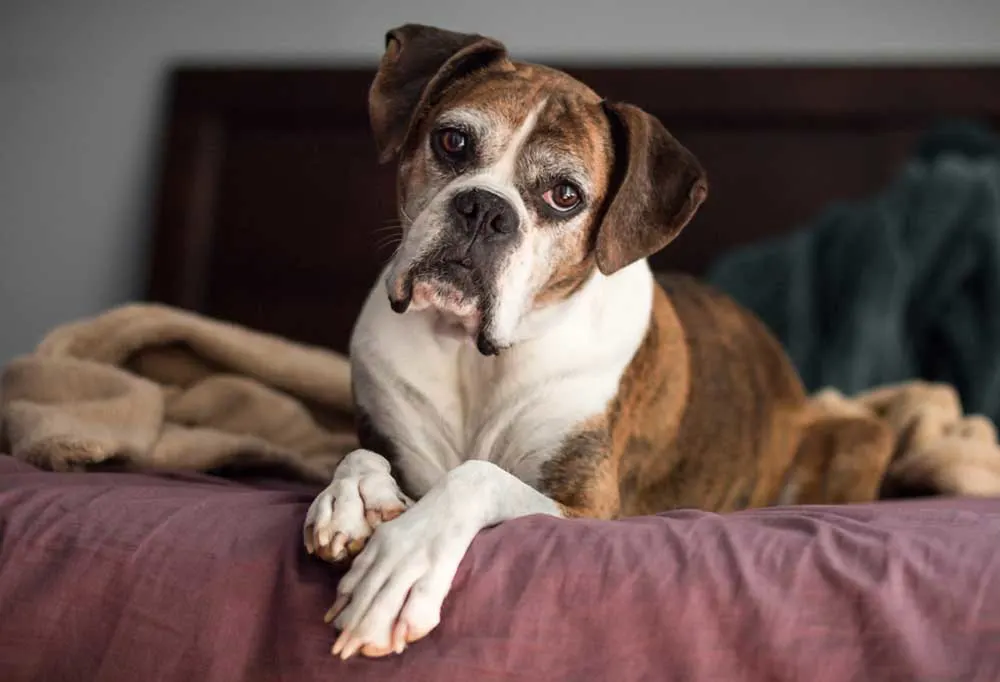
If you’ve recently adopted a dog, they are quite likely to indulge in night-time pacing. This is because they haven’t acclimated to your routine yet and could feel uncomfortable. However, there are more significant causes of this behavior that you must consider. Read on to know why your senior dog is pacing at night and learn what you can do about it.
Why is My Senior Dog Pacing at Night?
Dogs have been man’s best friend for a long time, so they’ve had plenty of opportunities to learn human habits. Nighttime prowling is typically not a concern for those of us who share a house with a canine companion, but it may happen.
Your dog may be pacing for various reasons, ranging from boredom to sickness. Some of the most prevalent reasons why dogs pace during the night are discussed below.
Restlessness

When it comes to dogs, restlessness is particularly prevalent among puppies and younger canines. They sleep a lot during the night and have quite a lot of energy at night. Hence, they’ll be ready for playing when you are about to hit the bed. The causes of evening anxiety in older or senior dogs might be more complicated.
They sleep a lot more during the day than adult dogs and may feel a little restless at night while they are getting used to your schedule.
Bathroom Needs

The dog you adopted may have a different potty schedule (than your routine). If that’s the case, he/she will take some time to adjust to your routine. Therefore, your dog could well be be crying at the door to go outside for pee or potty.
Hunger

This problem is very much similar to the one above because it is dependent on your canine’s past routine. Your new dog may had a completely different feeding schedule than yours. Hence, there is a possibility that your pooch’s stomach is empty and he is struggling with night pacing.
Anxiety

Stress can disrupt the sleep pattern of your dog and keep them up (and pacing) late at night. A relocation, a new pet in the family, or any major event can trigger this behavior.
Perplexity

Senior dogs frequently pace at night owing to their perplexing situation. Cognitive dysfunction is a slow-moving condition that resembles dementia. It causes your dog’s sleep-wake cycle to be reversed, resulting in senior dog tension, pacing, and panting.
What to Do if My Senior Dog is Pacing at Night?
If you believe that your pet is pacing due to health difficulties, talk to your veterinarian. Problems like anxiety, dementia, or discomfort, can require professional intervention and a qualified vet is your best bet.
Some sleep disorders in your pup might be resolved with a simple treatment or medicine. Others issues could not be curable, but they can be controlled to the point where your pet is able to sleep at night. The following are some other steps that you can take if your dog is pacing at night.
Make a Timetable

Senior dogs with cognitive impairment may get disoriented and nervous at night. They may sleep in the morning but are up the entire night. It’s possible that leaving the lights on will encourage them to adjust to your cycle. It may also assist your dog in feeling less perplexed if he or she is lost or anxious.
Provide a Comfortable Environment

If your dog is unable to relax, it may have difficulty sleeping. Sleeping on a hard, chilly floor or an uncomfortable blanket can cause restlessness and frustration, which leads to pacing throughout the night. You can invest in a comfortable dog bed for your pet (and place it in their crate if they feel safe there) to solve this problem. You may also add their favorite toys and your recently-worn clothes to help your dog feel more at ease.
Allow Them to Sleep With You

That isn’t feasible for every pet parent, but if you don’t currently share a bed with your dog, try this method to make them calm and comfortable. Dogs like being a part of your life in whatever way they can, even if it’s just snuggling in bed at night. Pacing can also be reduced by simply placing a dog bed next to your bed.
Ensure Regular Exercise

Another straightforward suggestion is to enhance your dog’s daily activity and mental stimulation. For example, take an extra lap around the block. You should also consider dog cognitive teasers and puzzles. There are hundreds of ideas and items that are meant to test your dog’s mental acuity. Find something that they like and it should help control the situation.
Use CBD

If your dog’s pacing is caused by discomfort, CBD can a good alternative. It is a non-psychoactive, natural substance found in the hemp plant. CBD helps your dog’s endocannabinoid system (ECS), which has a favorable impact on their general health.
CBD oils can make your dog feel calm and relaxed. They will also assist with both physical and emotional concerns of your pooch. Therefore, they will help your canine friend to sleep better. You should give CBD to your dog every eight hours or twice a day, including 30 minutes before bedtime. Consistent CBD dosages will increase the potency of the benefits over time.
As an Amazon Associate I earn from qualifying purchases.
